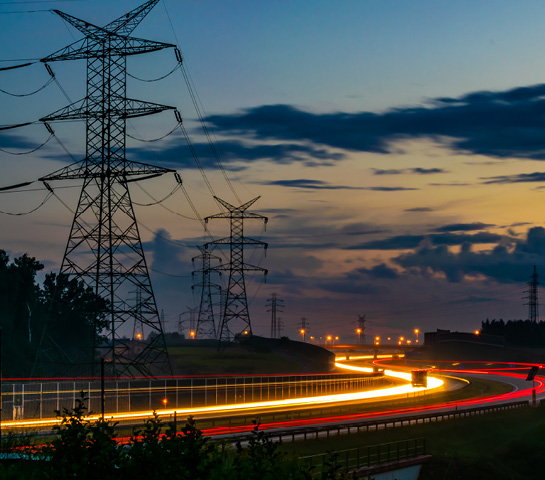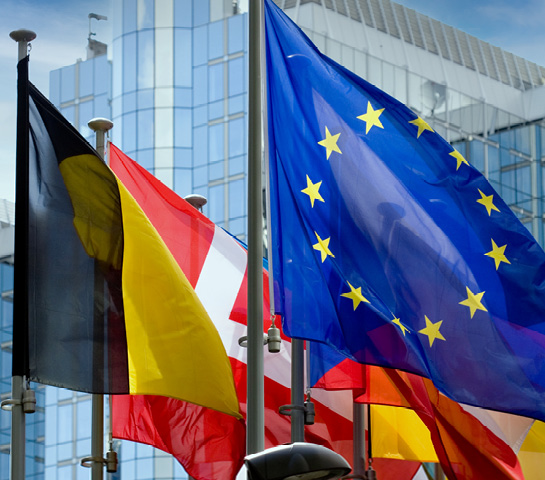Global Gateway – clear signals to the world economy
The European Union wants to invest around 300 billion euros in infrastructure projects within the framework of its Global Gateway Strategy – it is a matter of strategic autonomy and geopolitical aspiration. This means that new times have dawned not only in politics but also for the economy.
Partners, competitors, systemic rivals
The European Union’s China strategy dates from 2019 – three years ago, the EU already regarded Beijing not only as a partner, but also as a competitor and systemic rival. Since then, the relationship has steadily deteriorated.
In 2021, the Global Gateway Strategy was launched and can be seen as the European response to China’s Belt Road Initiative (BRI), as well as the Build-Back-Better-World Strategy (B3W) of the USA, which was adopted at the same time. This was followed in June 2022 by the Partnership for Global Infrastructure and Investments between the EU and the USA. Experts see this as an attempt to give the West’s two concepts more momentum.
China, on the other hand, has been very active in the last ten years: along the “New Silk Road”, Beijing has invested hundreds of billions of US dollars since 2013 in projects to build and expand intercontinental trade and infrastructure networks. More than 140 countries are now involved in the BRI project.
Unlike the value-oriented West, China focuses on non-interference: in many countries in Africa and Latin America, China is therefore more respected than the USA or Europe. China has thus been able to continuously expand its influence in important markets. Its strategic importance was underestimated by the West for a long time.
In the meantime, however, there is also criticism: Chinese construction projects are often more expensive than initially projected or delayed, are often harmful to the environment or turn out to be less useful than expected. Low-interest loans lead the countries into a debt trap and political dependence.
The EU invests – in Africa as well
With Global Gateway, the EU wants to offer an attractive alternative: By 2027, the approximately 300 billion euros are to be invested in high-quality infrastructure projects, especially in areas such as digital, climate and energy, transport, health, education and research. There is one prerequisite: Investments and cooperation correspond to the interests and values of the EU: This is about the rule of law, human rights and international norms and standards. “We will promote smart investments in high-quality infrastructure that meet the highest social and environmental standards in line with our values and standards,” explains Ursula von der Leyen, President of the European Commission. “The Global Gateway Strategy shows how Europe can connect to the world in a more crisis-proof way.”
Half of the money is earmarked for cooperation with Africa. The continent plays a key role in the EU’s energy transition in particular. By 2030, renewable energy generation capacities are to be increased there by at least 300 gigawatts; the first projects in Morocco and Nigeria have been agreed upon.
“The EU and its member states have geopolitical interests in Africa,” says Josep Borrell, the EU’s foreign affairs representative, and clarifies the paradigm shift in cooperation at the same time. The EU must “be sovereign in the world” and “learn the language of power” – as Ursula von der Leyen herself emphasizes, and as heads of state like Emmanuel Macron also see it.
New risks
The economy is familiar with trade conflicts, sanctions, state-motivated investments. But in recent years and months the situation has become even more acute. The risk of political factors jeopardising the stability of trade relations has risen sharply. This includes attacks on critical infrastructure: the EU considers acts of sabotage to be real and very likely. This is shown by a project supported by Global Gateway as well: A decision will be made by the end of the year whether European companies will set up a secure satellite communication system in the EU. This is to ensure that the EU remains connected in the case of cyberattacks or other disasters that could lead to a breakdown of terrestrial communication networks. “Satellite technologies are key to securing the EU’s strategic autonomy,” explained the leading EU parliamentarians from ITRE, the Committee for Industry, Trade, Research and Energy (ITRE). This initiative also aims to reduce the EU’s dependence on foreign companies.
Economy becomes an instrument of politics
In view of the new risk situation, the economy and trade relations are increasingly becoming political instruments. On the one hand, it is a matter of forcing other states to change their behaviour with economic sanctions or to protect and support economic sectors and know-how-intensive domestic industries with subsidies. On the other hand, the aim is to reduce dependence on countries from which political difficulties or hostile actions could emanate. Factories for semiconductors and computer chips or for the production of batteries for electric cars have recently been built in Europe with EU support – these goods previously came almost exclusively from the Far East.
EU values have been becoming increasingly important in global competitive considerations as well as in consumer assessments for years: with the new supply chain law, EU companies are subject to certain due diligence obligations and must comply with minimum political and social standards, such as respecting human rights or banning child labour. Politically correct production is also becoming increasingly important: in the wake of the Russian war of aggression on Ukraine, many companies withdrew from Russia – not least because they feared massive reputational damage.
Businesses learn to do Friendshoring
When political differences become a relevant factor in how much countries trade with each other, this has an impact on supply chains. Many companies are currently reviewing their value chains and sales markets – and their dependencies. The consequences of this are illustrated by an example from Germany: according to a survey by the Ifo Institute, almost half of all German companies in the manufacturing sector are dependent on important deliveries from China. Of these companies, however, one in two also plans to reduce imports from China. The reasons they give are the desire for greater diversification, transport that is prone to disruptions and has become more expensive, and political uncertainty.
US Treasury Secretary Janet Yellen recently coined the term Friendshoring: at a Bretton Woods Committee event, she said Washington was working to deepen integration with the European Union and Indo-Pacific countries, including many emerging and developing economies, while building more redundancy into its supply chains. “Friendshoring is not meant for a tiny handful of countries. It is not meant to be protectionist. It’s about creating diversity while still reaping the benefits of trade,” Yellen said.
This is also the path Europe is taking. For the economy, this entails restrictions and disadvantages, but also opportunities. Politically, the path is prescribed: “A stronger Europe in the world means a firm commitment to our partners, firmly anchored in our fundamental principles. With the Global Gateway Strategy, we reaffirm our vision of a network of interconnections that must be based on internationally recognised standards, rules and regulations to ensure a level playing field,” are the words of Josep Borrell, the EU’s External Relations Commissioner.
More insights

Climate protection versus energy crisis? Rethink now!

M&A in logistics – demand is high, but so are the risks

Why is there a labour shortage?
Get in touch
Contact
Phone +41 41 500 05 31

